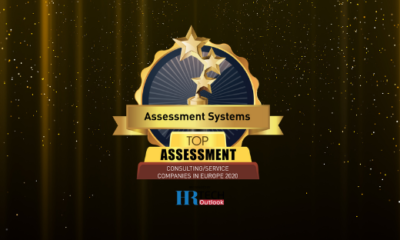Inspirations
Get inspired by our articles, interviews, and more!



What’s the difference between Gamification, Gamified Assessment and Game-Based Assessment?
Gamification, which has been defined as “a use of game design elements in nongame contexts” (Deterding, Sicart, Nacke, O’Hara, & Dixon, 2011, p. 1) presents one of the newest ways to improve on traditional assessment formats. The application of game elements to assessments can be split into three major categories; Gamification, Gamified Assessments, and Game-based assessments. Each method attempts to improve on traditional assessment formats, but they employ game elements in their own way by varying where they’re implemented, and for what purpose.

TOP HR trends for 2021
Diving into industry news and trends in the first working days of the year helps you get in the mood for work and get inspired for new projects. The Assessment Systems team also decided to start the year by studying HR trends and international researches to come up with the Top 10 HR Trends for 2021. Let’s quickly learn more about these trends.

Dr. Robert Hogan – On key factors of leadership success, challenges on different management levels & HiPo selection and retention
We had the opportunity to host dr Robert Hogan, founder of Hogan Assessment Systems and the inventor of the famous personality assessments, so we took this chance to get his view on some of the burning issues in HR now, as well as his insights into the factors which make great leaders. We bring you some of the most interesting answers bellow.

How to attract Generation Y and Z talents?
Companies have been looking for an ideal solution to pick and keep the best talents from generation Y and Z – the generations entering the job market. Creativity and innovation in the selection process is the right answer.

An entertaining atmosphere in the workplace results in increasing competitive advantage
Most corporations are not ready for the changes of the new era. They still do not understand why an entertaining atmosphere is crucial for engaging their employees!
Over the past six months, HR-leaders have continually reported about the inefficiency of incentive methods which are no longer cost efficient. According to Zsolt Fehér, expert of Assessment Systems International this motivational crisis happens as a result of a generational change which impacts the lower levels of organizations. The latest research of the regional consultancy firm explores the background of this phenomenon. The findings show that the drivers younger workers differ significantly from their elders but at the same time are fairly similar to the drivers of their western peers (especially in the United States). The results serve well as food for thought if we consider the effects at the micro and macro levels: now that young Hungarian graduates can easily be integrated into any organizational culture it is exceptionally important for Hungarian corporations to be able to attract and retain them with the right drivers.

Assessment Systems Is among the Top 10 Assessment Companies
In today’s dynamic world, employees are one of the valuable assets of an organisation and the key to success. Having quality employees will help companies run and grow. However, it can be a daunting task to recruit and keep top talent. One of the major fears for HRs during recruitment is hiring the wrong person, which can be a colossal waste of time, money, and other resources. Against this backdrop, a question that remains for HRs is how to ensure that the candidate hired is an excellent fit on all levels and how to enhance their competencies so that they can thrive in their jobs and drive company growth? Assessment Systems has the answer.

How Come Smart People Can Make Stupid Decisions?
After more than 100 years of research a majority of psychologists has agreed upon a definition of measurable intelligence (IQ) that can be described:
as the ability to reason, plan, solve problems, think abstractly, comprehend complex ideas, learn quickly and learn from experience. It is not merely book learning, narrow academic skill, or test-taking smarts. Rather it reflects a broader and deeper capability for comprehending our surroundings – “catching on,” “making sense” of things, or “figuring out” what to do.

The Importance of Humility in Leadership (Interview with Dr. Robert Hogan)
Charismatic leaders tend to focus on personal advancement, humble leaders tend to focus on team performance and guiding their employees. Effective leaders are willing to admit mistakes, share credit, and learn from others. Humility in leadership also leads to higher rates of employee engagement, higher job satisfaction, and lower rates of turnover.